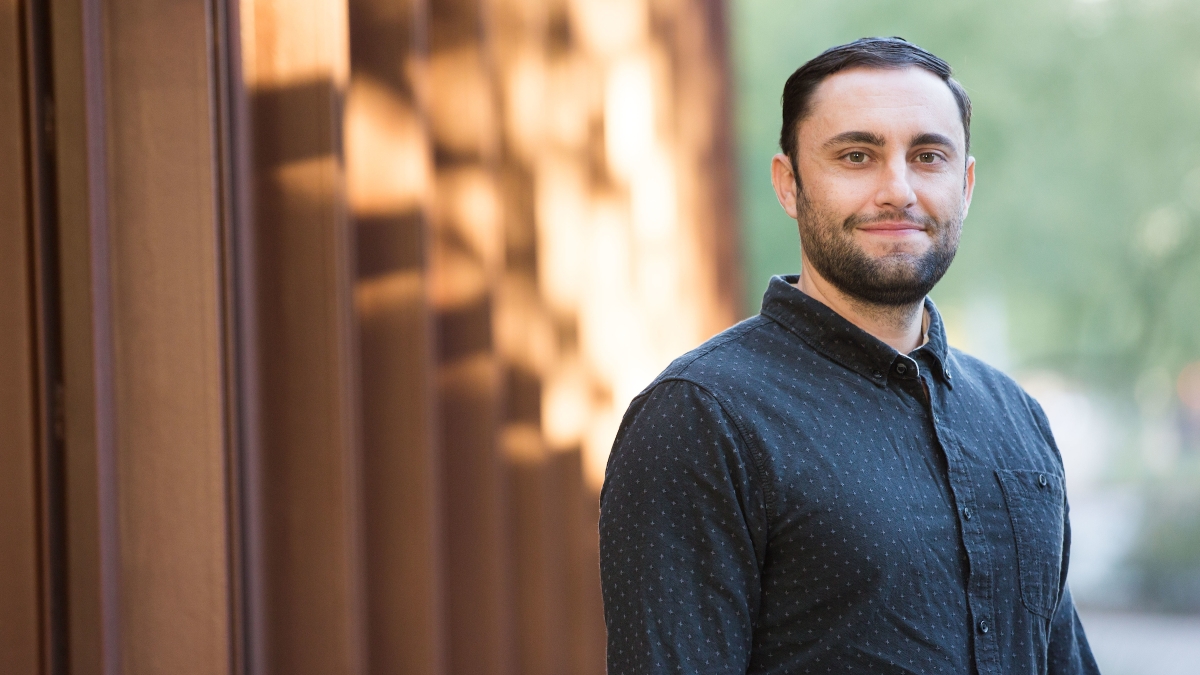For ASU senior, it all started with a rock that was nearly 2 billion years old

Editor’s note: This is part of a series of profiles for fall 2016 commencement. See more graduates here.
For Ryan Burke, it all began with a rock he found while walking around Camp Tontozona.
He touched it, picked it up and examined it. It was about 1.7 billion years old.
“I thought that was amazing,” said the graduate of the School of Earth and Space ExplorationThe School of Earth and Space Exploration is in the College of Liberal Arts and Sciences. at Arizona State University.
The San Diego native was awarded the College of Liberal Arts and Sciences Dean’s Medal this semester. He majored in geological sciences with a minor in sustainability.
Burke has one of the two highest GPAs of School of Earth and Space Exploration (SESE) graduating students.
He was nominated for the recognition by professor Arjun Heimsath.
“I got to know Ryan as an exceptionally talented and hard working student who showed a special gift for working with other students,” Heimsath said. “He is a natural leader, and he leads in an unassuming and quiet (compared to the cliché that we have of an Army drill sergeant) way that is impressive to watch. ... His piercing questions in class, attentive attitude and diligence with assignments and exams all help explain his excellent GPA. His “can do” attitude is well known by all who have taught him and is a delightful testament to how well life experience can serve our students.”
Read on to find out how a middling high student came out of the Navy after six years to earn his degree and the Dean’s Medal.
Question: What was your “aha” moment, when you realized you wanted to study the field you majored in?
Answer: Honestly, I wasn’t really sure. When I got out of the military in 2007, I initially wanted to be a business major, but I wasn’t accepted into the business school, but I was accepted into SESE. After taking one course, I was glad I didn’t get into the business school. It was SESE 121 (Earth, Solar System & Universe I) that won me over. I was ignorant about the universe and the science behind it.
Q: What’s something you learned while at ASU — in the classroom or otherwise — that surprised you, that changed your perspective?
A: It’s probably more of a personal evolution. In high school, I wasn’t a terribly good student, but the military gave me the motivation to be in a managerial position rather than a grunt. I had never been good at math or science, and now I’m pretty good at them. I turned a weakness into a strength.
Q: Why did you choose ASU?
A: My dad majored in physics (at ASU). I have an uncle who majored in aeronautical engineering (here). A lot of family ties.
Q: What’s the best piece of advice you’d give to those still in school?
A: Probably just to persevere. Before I started this whole adventure, I thought some things would be too difficult. It’s just a matter of how hard you’re willing to work.
Q: What was your favorite spot on campus, whether for studying, meeting friends or just thinking about life?
A: The mineralogy specimens room. It’s really quiet. The libraries are packed and seating is limited. In the mineralogy room, it’s restricted to geology students.
Q: What are your plans after graduation?
A: I have a job prospect with the city of Scottsdale, working in the water department as a hydrologist or hydrologist’s apprentice, and some grad school opportunities. Hopefully, I’ll find an employer who will pay for grad school.
Q: If someone gave you $40 million to solve one problem on our planet, what would you tackle?
A: I don’t think that would be enough. My thing is sustainability. Obviously, it’s something that’s widely regarded as a problem, but it poses more of a risk than the media covers. I’d get a policy passed about a carbon tax, something of that nature. It’d have to start at the policy level.
*An earlier version of this story misstated the age of the rock.
More Science and technology

ASU and Deca Technologies selected to lead $100M SHIELD USA project to strengthen U.S. semiconductor packaging capabilities
The National Institute of Standards and Technology — part of the U.S. Department of Commerce — announced today that it plans to award as much as $100 million to Arizona State University and Deca…

From food crops to cancer clinics: Lessons in extermination resistance
Just as crop-devouring insects evolve to resist pesticides, cancer cells can increase their lethality by developing resistance to treatment. In fact, most deaths from cancer are caused by the…

ASU professor wins NIH Director’s New Innovator Award for research linking gene function to brain structure
Life experiences alter us in many ways, including how we act and our mental and physical health. What we go through can even change how our genes work, how the instructions coded into our DNA are…